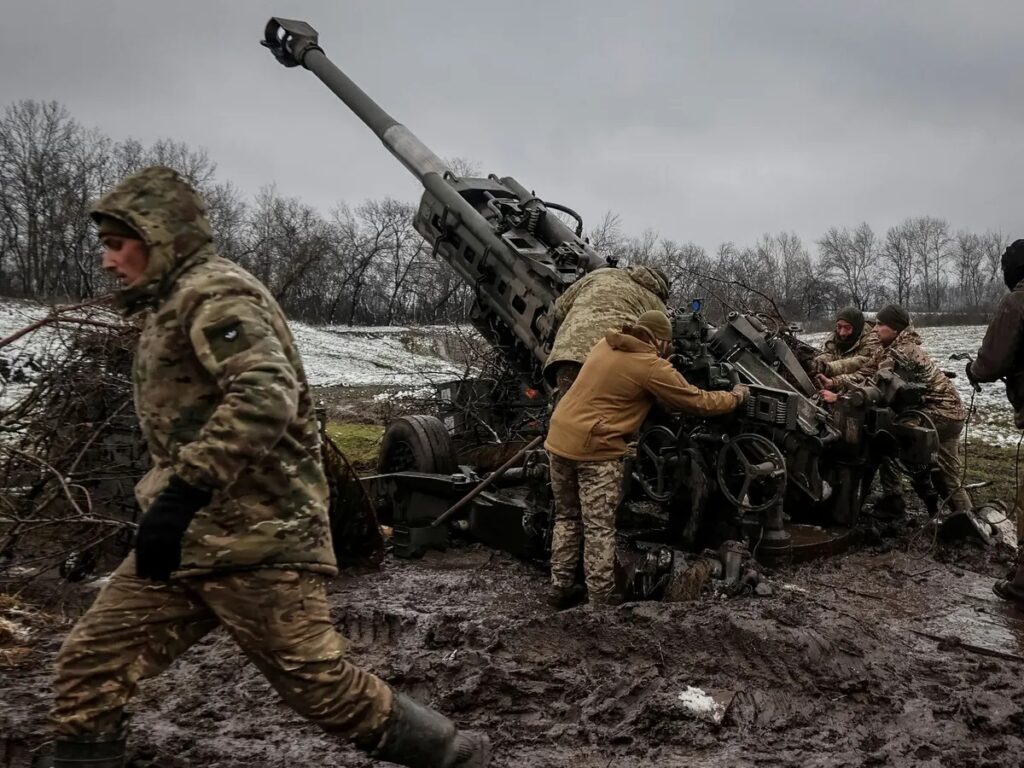The Western support for Ukraine's war of defense against Russia's aggression is unlikely to achieve a Russian defeat. Moreover, it has become an enormous burden, putting at risk the West attaining its other critical strategic objectives.
Despite Ukraine’s territorial gains, it is becoming increasingly clear for a number of reasons that the war will not end with restoring full Ukrainian territorial integrity, as President Volodymyr Zelensky demands. Crimea and the Donbas region, populated by a significant population of ethnic Russians, are unlikely to revert to Ukrainian rule.
The staying power of Russia is more substantial than Ukraine’s and thus despite economic difficulties and military problems, Russia will not likely submit to Ukraine’s conditions. Moscow will probably continue its war of attrition, exacting a high price on Ukraine’s infrastructure and army.
Putin is unlikely to accept defeat. Moreover, an attempt to humiliate Russia is not wise and is likely counter-productive. Therefore, the Ukrainian-defined victory is not attainable.
In contrast, the West has already attained the strategic objective of weakening Russia, making NATO’s eastern flank more secure. Moscow cannot swallow Ukraine under the present circumstances.
While upholding the principles embodied in the moral support for Ukraine’s courageous struggle matters, the continuation of the war is harming the West and endangering its battle to maintain superiority over autocracies.
Denial of Russian win
Jens Stoltenberg, secretary-general of NATO, recently stated a more modest goal: denial of a Russian win. That less-clearly defined objective opens room for negotiating a a political compromise, which should become the primary concern of American and EU diplomacy.
The war in Ukraine is diverting attention from the central strategic challenge facing the US and the West: China. Pivoting to Asia – the strategy advocated by the last three US presidents – remains an empty slogan as Ukraine devours Western attention and resources.
Beijing is looking with satisfaction at the Western imbroglio in Eastern Europe, as a Western alliance lacking a strategic focus serves Chinese interests: it weakens Moscow and strengthens its alignment with Beijing. The Ukraine war also unites Iran and Russia in an anti-West position.
The fighting in Ukraine is a resounding example of a high-intensity war that many strategists believed was a phenomenon long past. Nevertheless, it is here, consuming considerable military assets and vast amounts of expensive munitions.
It is unclear how long the West can continue supplying Ukrainian combat troops. Western ammunition stock is quickly depleting. Current production lines cannot promptly replenish the war material sent to Ukraine, so the Ukrainian capacity to resist Russia will dwindle. Moreover, Western involvement considerably reduces its ability to fight a war elsewhere.
Risk of nuclear escalation
A critical consideration for finding a diplomatic solution to end the war is the risk of nuclear escalation. The West mostly adheres to the Mutually Assured Destruction (MAD) doctrine, whose central tenet maintains that crossing the nuclear threshold leads to an all-out atomic war of unimaginable destructive character. This doctrine significantly inhibits the use of nuclear warheads.
In contrast, Russia’s nuclear doctrine allows for a gradual use of nuclear weapons within a large-scale conventional war. Therefore, the West should take Russian nuclear threats seriously, especially when its conventional military fortunes take a turn for the worst.
We also have begun to see small cracks in the NATO alliance due to the duration of the war. There are differences of opinion between Europeans and Americans about arms production policies and the desired outcome. A cold winter will amplify transatlantic tensions.
The European perspective is different from the American because the war is closer to their capitals than to Washington. An unforeseen military escalation will be on European territory. Unprepared European armies will have to wage war and their countries will face destruction as Ukraine is suffering now. Moreover, astute Europeans should fear more than the Americans the crossing of the nuclear divide. All this means that Europeans should do their best to end the war in Ukraine.
Moreover, maintaining the war against Russia amounts to further investing effort to weaken a secondary opponent. While Russia has an impressive nuclear arsenal, its conventional army is in bad shape. The GDP of NATO nations equals 45% of the world economy, around 18 times larger than Russia’s, so any further attempt at debilitating Russian military capabilities hardly impacts the European and global balance of power.
Preventing more destruction
The continuation of the war only magnifies the destruction Russia brings upon Ukraine, particularly its economic infrastructure, by indiscriminate targeting of civilian targets. The longer the war lasts, the more money the West will need to reconstruct the devastated state when hostilities eventually conclude.
The understandable American reluctance to put boots on the ground will become morally more questionable as the war drags on and its tragic features become even more pronounced. American hesitations to fight another just war could be overturned by unforeseen events on the battleground.
For all these reasons, a wise Washington should do its best to find a formula to end the war in Ukraine. Gentle pressure on Kyiv to accept a political compromise is needed, as well as resisting punitive impulses against the Russian aggressors. Western leaders should overcome the tendency to look at the sunken costs and concentrate on the risks and meager marginal profits to be achieved if the war continues.
The template for a compromise still needs to be clarified. The Finlandization of Ukraine – an option that should have been pursued before the war – is probably the most promising. While Ukraine will have to give up NATO membership, its accession to the EU should be accepted by Russia. Alas, no state can escape the constraints of geopolitics.
In a noble and expensive gesture, the West has given Ukraine some leeway. Being a neighbor of a giant bear such as Russia carries consequences. Ukraine ignored its predicament and is paying heavily for this mistake.
By Professor Efraim Inbar, President of the Jerusalem Institute for Strategy and Security (JISS)


